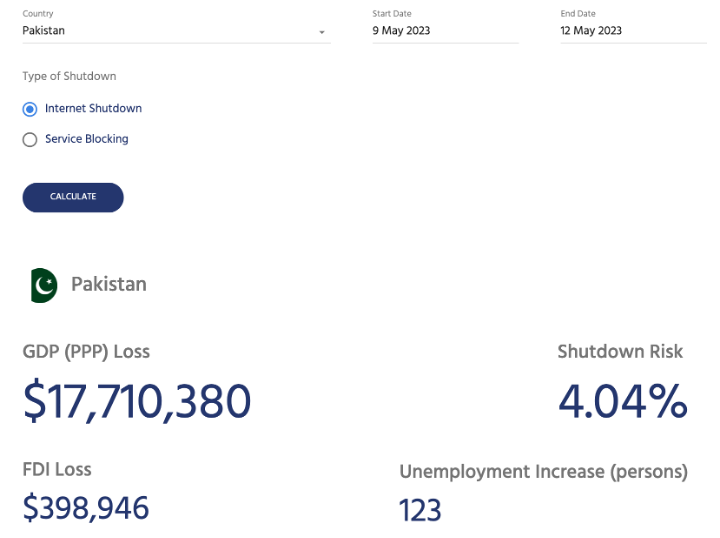Earlier this month, people in Algeria might have felt like they’d woken up in a different era as they struggled to conduct their daily online lives. The government had ordered Internet Service Providers (ISPs) to block certain websites, including news and social media services, rendering large parts of the Internet inaccessible to everyone.
The orders were given by local authorities, as part of efforts to curb cheating during the national baccalaureate exams held from 11-15 June.
Economic Impact on Local Citizens
Mehdi Dahhak, a journalist and director of Desert Foot, told Internet Society partner Social Media Exchange (SMEX), “This reality disrupts our work significantly, especially since most of our readers are Facebook and Twitter users, which leads to a decrease in readability rates and this affects us economically.”
Sarah Zahaf, a manager at a tourism agency in Algiers, also told SMEX that tourism businesses are among the biggest losers due to the interruption of Internet access. “[The Internet disruptions] hindered our communication with our customers outside the country, and our agency suffered material losses estimated at 10% per day due to [missing] ticket reservation [deadlines], in addition to our inability to meet the requests of customers arriving due to the interruption of the network.”
Measuring the economic impact of Internet shutdowns like the ones that happened in Algeria, as well as the other 18 shutdowns that Internet Society Pulse has tracked in the month of June alone, has been a challenge outside of these personal accounts. Until now.
Introducing the NetLoss Calculator
The NetLoss calculator is a new tool that estimates the economic cost of Internet shutdowns by way of a rigorous methodology.
The NetLoss calculator uses a reproducible, econometric framework to consider a wide range of publicly available economic inputs including:
- Shutdown data: Internet Society Pulse provides detailed event-level data on government-mandated shutdown events and classifies shutdowns since 2019 as either national or regional shutdowns or service blocking.
- Protests and civil unrest: The Armed Conflict Location & Event Data Project provides detailed event-level data on various events since 2016. Each event is classified as belonging to one of five types: (a) battles; (b) protests; (c) riots; (d) strategic developments; or (e) violence against civilians. It also logs the start and end dates for these events and provides details of who the involved parties were and if there were any fatalities associated with the event.
- Elections: The Constituency-Level Elections Archive maintained by Yale University provides data from elections to the lower chambers for more than 150 countries at the month-year level since 1960.
- Socioeconomic indicators: World Bank provides data on economic indicators (GDP in USD purchasing-power-parity terms, at current prices), employment (International Labor Organization (ILO) estimates), and Foreign Direct Investment (FDI, as a percentage of GDP as well as net inflows).
In addition to these economic indicators, the NetLoss calculator also considers other factors that can impact country-specific economic outcomes, such as the rate of inflation (percentage), age dependency ratio (percentage of working people ages 18-65 to total population), the fraction of the population residing in urban areas, and the percentage of the labor force with basic education.

The NetLoss calculator estimated the recent shutdown in Pakistan (9-12 May) cost the country more than 17 million USD as well as increased unemployment.
Take Action Against Internet Shutdowns
Governments often mistakenly believe that Internet shutdowns will quell unrest, stop the spread of misinformation, reduce harm from cybersecurity threats, or, as in the case of exam-related shutdowns happening in Algeria and Iraq, curb cheating. But shutdowns are extremely disruptive to economic activity: they halt e-commerce, generate losses in time-sensitive transactions, increase unemployment, interrupt business-customer communications, and create financial and reputational risks for companies.
The Internet Society has long opposed the practice of Internet shutdowns, and urges all governments to refrain from implementing them due to the damage they inflict on a nation’s economy, civil society, and Internet infrastructure. With the NetLoss calculator, organizations and advocates can demonstrate to governments how a shutdown will negatively impact their nation’s economy. It will also show a wider community of technologists, journalists, policymakers, and advocates why shutdowns are such a damaging practice.
Join the effort to demand authorities guarantee open access to the Internet at all times.
Image copyright: ©Unsplash

